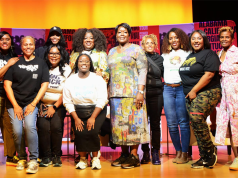By Glenn Ellis
The Centers for Disease Control and Prevention (CDC) stated early on in this pandemic that “vulnerable populations” need to take extra precautions to protect themselves, and their families from COVID-19. By now, we know that COVID-19 causes more serious illness in the elderly, especially those who have pre-existing conditions. I’m still trying to find an elderly person over the age of 80, without a pre-existing condition.
The people who live in these seniors and assisted living facilities are, on average, probably over 80 and tend to be some of the frailest and sickest members of our society. It was established, as far back as 2002, in a study published in the Annals of Internal Medicine, which stated that nearly 82 percent of Medicare beneficiaries have at least one chronic condition, and 64 percent have multiple conditions. But that’s another story, for another time.
For now, we need to consider the extent to which this whole notion of vulnerable populations. No group has come to represent these “vulnerable populations with pre-existing conditions; in particular, African Americans. The CDC says that 30 percent of the Africans Americans who have died from COVID-19 also were younger than 65-years old, while just over 13 percent of white Americans were younger than 65 who died.
Dr. William Bommer at UC Davis Health System feels that overall people with chronic (pre-existing) conditions are at a 10 times higher risk from COVID infection than the general population. Think about it, just the fact that a person has high blood pressure, obesity, diabetes, heart disease, or some type of lung disease, not only makes them more likely to get infected with COVID-19, but also increases the odds of them getting admitted to a hospital, then to Intensive Care Unit or death. In fact, chronic conditions can almost double the chance that you will die, if you are infected with COVID-19.
One study from the CDC reports that patients with an underlying health condition were six times more likely to end up in the hospital and 12 times more likely to die if they contracted COVID-19 than otherwise healthy people.
As reported by CBS News, “African Americans are more likely to work in jobs that can expose them to the virus, less likely to be able to take time off from work and more likely to be the sole breadwinner for their family. Such factors, a legacy of the country’s long history of racism and segregation, compounds the higher incidence of underlying health conditions among Blacks that make COVID-19 deadlier for Black, Latino and Native people.
“Further risks come from the fact that African Americans are less likely than people working in the general workforce to work in the sorts of jobs that allow the option of working from home.”
Lost during all the frenzy around this pandemic, is the fact that the social determinants of health at play during this pandemic are an exacerbating factor for African Americans. A 2017 study in JAMA Internal Medicine showed that for African Americans, just by moving out of racially segregated neighborhoods, with its associated social determinants of health was linked to a drop-in blood pressure. Do you understand how critical this situation is?
Like it or not, we will be going back-and-forth with some form of shelter in place vs. re-opening for some time to come.
We see clearly the testing for our communities are not anywhere close to being a priority in the eyes of officials; there has been no effort to ensure that African Americans are included in the clinical trials, especially considering what we know about the impact of the social determinants of health on drug efficacy in respective populations.
One of the biggest challenges awaiting us in this regard, is the question of “who gets the vaccine first? Will the conscience of this nation lead it to the acknowledge that there are upwards of 40 million Americans, who are at increased risk of every danger this virus poses: higher risk of infection; higher hospitalization; higher death; and should we be fortunate to survive, we are expected to recover in communities with decimated primary care systems that are not capable of providing the care so badly needed by a population wrought with “pre-existing” conditions that result in numerous complications, and a tougher road to recovery.
We must be extremely vigilant in how we practice the necessary precautions and safety measures to protect ourselves. We’ve been shown that we can’t rely on press briefings, nightly news, or Facebook to make decisions. We have to use our sound judgement and use our collective voices to advocate and demand equitable protection and care as we all go through this pandemic.
I close with the powerful statement from Alan Elbaum in his essay, Black Lives in a Pandemic: Implications of Systemic Injustice for End‐of‐Life Care, “What are the ethical implications of racial health disparities when it comes to end‐of‐life care? Is there such a thing as a “good” or “dignified” death when African Americans are dying not merely of Covid‐19 but of structural racism?”
Glenn Ellis, MPH is a Visiting Scholar at The National Bioethics Center at Tuskegee University and a Harvard Medical School Research Bioethics Fellow. He is author of Which Doctor? and Information is the Best Medicine. For more good health information visit: www.glennellis.com




